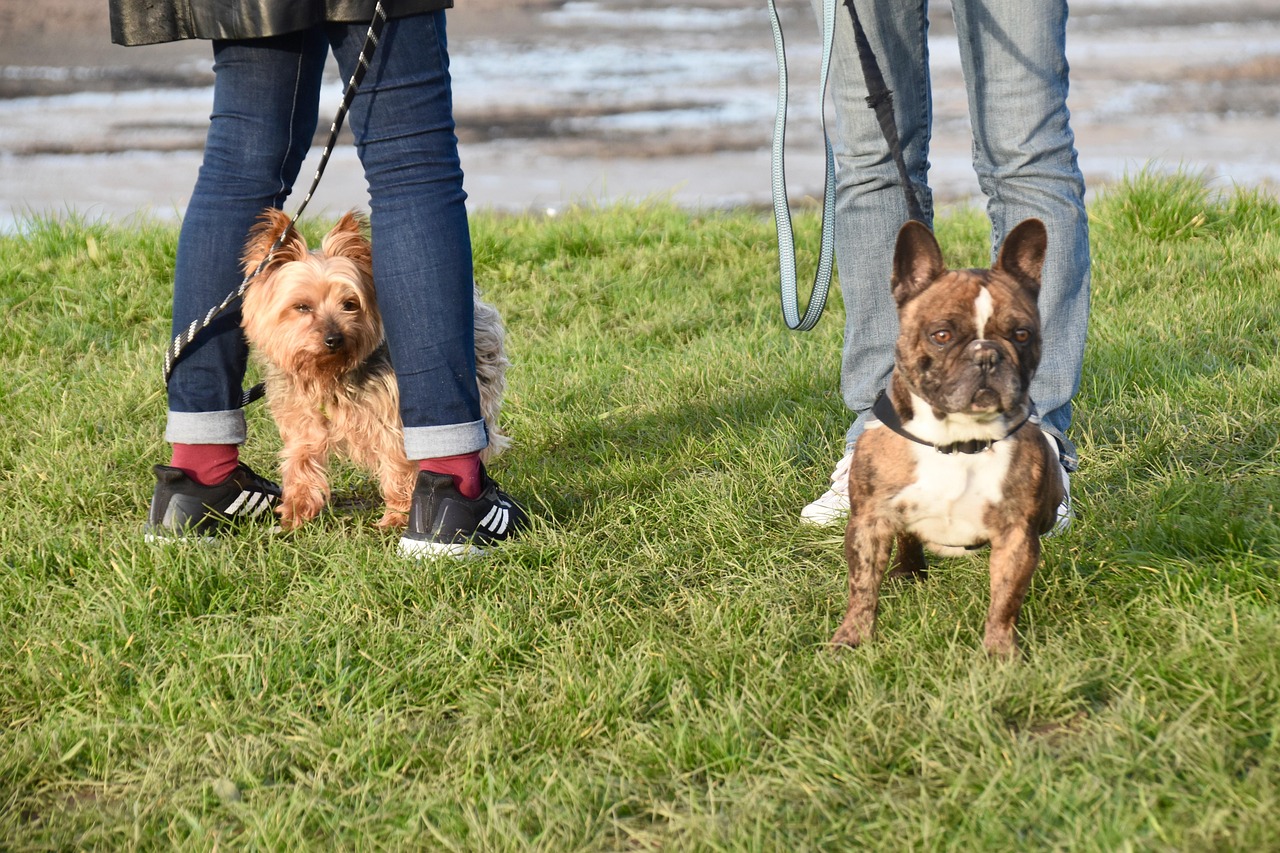Taking your dog for a walk is more than just a routine chore; it’s an essential part of their physical and mental well-being. Regular walks provide opportunities for exercise, socialization, and exploration, all of which contribute to a happy and healthy pet. Understanding the best times for these outings can enhance the experience for both you and your furry friend. In this blog, we’ll delve into the optimal walking times, tips for making the most of each stroll, and the benefits of establishing a consistent routine. Let’s explore in detail below.
Optimal Times for Dog Walks
Morning Walks: Starting the Day Right
Taking your dog for a morning walk is a wonderful way to kickstart both your day and theirs. Early mornings are often quieter, with fewer distractions and disturbances from traffic or crowds. This peaceful environment can help your dog feel more relaxed and focused during their outing. Moreover, morning walks allow dogs to expend energy that might otherwise lead to restlessness later in the day. It’s also a great opportunity for you to enjoy the fresh air and perhaps catch a beautiful sunrise, making it a rewarding experience for both of you.
Afternoon Adventures: A Break from Routine
For those who have flexible schedules or work from home, afternoon walks can be an excellent choice. This time of day can provide a break from routine, allowing both you and your pet to recharge. Afternoon walks are especially beneficial during the warmer months when the sun is at its peak, as they can help regulate your dog’s temperature by keeping them active. Additionally, this is a good time for socialization with other dogs and people who are out enjoying the day, fostering positive interactions that contribute to your dog’s well-being.
Evening Strolls: Winding Down Together
As the day comes to an end, evening walks serve as a perfect way to wind down and reflect on the day’s activities. This time allows you to bond with your dog after a busy day while also providing them with one last chance to relieve themselves before bedtime. Evening strolls can be particularly soothing; the cooler temperatures and dimmer light often create a calming atmosphere. Plus, this is an ideal opportunity for some gentle exercise that helps prepare your dog for a restful night’s sleep.
Weather Considerations for Dog Walking

Hot Weather Precautions
When it comes to walking your dog in hot weather, timing becomes crucial. The heat of midday can be overwhelming for many breeds, especially those with short snouts or thick fur coats. It’s wise to plan walks during the cooler parts of the day—early morning or later in the evening—to prevent overheating and paw pad burns from hot pavement. Always carry water along and take breaks in shaded areas when needed to keep your furry friend hydrated and comfortable.
Cold Weather Tips

Just as heat can be harmful, frigid temperatures present their own challenges. Dogs can suffer from frostbite or hypothermia if exposed to extreme cold for too long. In winter months, consider shorter walks but increase their frequency if possible to ensure they still get ample exercise without being out in harsh conditions for extended periods. Dressing your pup in a warm coat or booties may also enhance their comfort level during chilly outings.
Rainy Day Strategies

Walking your dog in the rain requires some extra planning but can be managed effectively with the right approach. On wet days, it’s essential to equip your dog with a waterproof jacket if they’re comfortable wearing one. Shorter but more frequent walks may be necessary since prolonged exposure to wet conditions could lead to discomfort or illness. After each walk, ensure you dry off your dog thoroughly and check their paws for any debris or irritation caused by waterlogged terrain.
The Importance of Routine
Establishing Consistency
Creating a regular walking schedule not only benefits your dog’s physical health but also reinforces good behavior patterns. Dogs thrive on routine; knowing what to expect helps them feel secure and reduces anxiety levels. By walking at consistent times each day, you’re helping them develop healthy habits that contribute positively to their overall lifestyle.
Behavioral Benefits of Regular Walks
Regular walks play a significant role in curbing undesirable behaviors such as excessive barking or chewing due to boredom or pent-up energy. When dogs receive sufficient exercise through daily walks, they are less likely to engage in these negative behaviors as they have outlets for their energy and mental stimulation. This results in happier pets and more harmonious living environments.
Building Stronger Bonds
Walking together fosters deeper connections between you and your canine companion. The shared experience of exploring different environments enhances trust and understanding between you two. Use this time not just for physical activity but also for training opportunities—practicing commands like “sit” or “stay” while on leash helps reinforce obedience while strengthening your bond through positive interactions.
Socialization Opportunities During Walks
Meeting Other Dogs
Walks provide an excellent platform for socializing your dog with other animals they encounter along the way. Interactions with fellow dogs help teach important social cues and behaviors that cannot be replicated in isolation at home or even in controlled settings like dog parks. Observing how other dogs communicate can enhance your pet’s confidence when meeting new friends.
Engaging with People
Just as important as meeting other dogs is interacting with various people during outings. Whether it’s friendly neighbors or fellow walkers at the park, these encounters help expose your dog to different scents, sounds, and visual stimuli that contribute positively towards building their confidence around unfamiliar situations.
Exploring New Environments
Changing up walking routes keeps things exciting—not only does it keep physical exercise interesting, but it also provides mental stimulation through new sights and smells! Exploring different parks or neighborhoods allows dogs (and owners) alike an adventure filled with discovery rather than sticking strictly within familiar territories which may become dull over time.
Health Benefits of Regular Walking
Physical Health Advantages
Regular walks significantly improve cardiovascular health by promoting better blood circulation while helping maintain an optimal weight range through consistent exercise routines tailored according each individual dog’s needs based on age breed size etc.. Furthermore joint mobility benefits immensely from low-impact activities such as leisurely strolls which reduce stiffness associated aging conditions like arthritis prevalent among older pets.
Mental Stimulation Through Exploration
Walking isn’t just about physical exercise; it’s also crucial for mental engagement! Dogs are naturally curious creatures who thrive on sensory experiences—sniffing new scents encountering diverse terrains stimulate cognitive functions keeping minds sharp throughout life stages preventing boredom-induced behaviors stemming isolation lack stimulation typically seen within confined spaces over long periods without activity breaks!
Emotional Well-Being Enhancement
Daily outings create opportunities not only promote fitness but positively affect mood stability reducing anxiety levels leading happier healthier lifestyles overall! Engaging physically mentally emotionally strengthens bonds between humans canine companions alike contributing enriching experiences enhancing quality lives shared together fostering fulfillment companionship unique only found relationships forged over time spent outdoors exploring world around us side-by-side every step taken adventure unfolds ahead!
In conclusion
Walking your dog is an essential part of their daily routine, offering numerous benefits for both physical and mental health. By establishing a consistent walking schedule, you not only enhance your dog’s well-being but also strengthen the bond you share. Regardless of the time of day or weather conditions, prioritizing regular walks creates opportunities for exercise, socialization, and exploration. Ultimately, these outings contribute to a happier and healthier life for your furry friend.
More useful information
1. Always carry water on walks to keep your dog hydrated.
2. Adjust walking times based on the weather to ensure comfort and safety.
3. Use a leash that provides control while allowing some freedom for your dog.
4. Monitor your dog’s energy levels and adjust the length of walks accordingly.
5. Take time to explore new routes to keep walks interesting for both you and your pet.
Summary and conclusion
In summary, regular dog walks are vital for maintaining your pet’s health, happiness, and behavior. Morning, afternoon, or evening outings each offer unique advantages that cater to different needs and lifestyles. Incorporating these walks into your daily routine not only benefits your dog physically but also enhances their emotional well-being through social interactions and mental stimulation. By prioritizing these moments together, you foster a strong bond that enriches both your lives.
[Related posts with similar topics]






